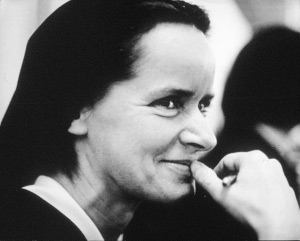A Quote by Mark Manson
I think my approach to a creative career was very entrepreneurial. Even though I'm a writer, I've always viewed my work much in the same way as a startup or marketer might view their work.
Related Quotes
When I'm editing my work, I'm looking for everything to fit, to feel seamless, for every detail or line of dialogue or scene to feel necessary and organic. I approach the writing of others in much the same way while always working to preserve the writer's voice. To allow myself to be vulnerable on the page, I tell myself no one is going to read my work. There's no way I could put myself out there otherwise.
I always wanted to be a scientist. I don't really have any writer friends. The process of being a writer is much more interior than being a scientist, because science is so reactionary. I think that all research scientists think of themselves as belonging to a grand tradition, building on work that has been worked on since the very beginning of science itself. Whereas I'm not sure writers think of themselves in the same way.
I think that very often younger writers don't appreciate how much hard work is involved in writing. The part of writing that's magic is the thinnest rind on the world of creation. Most of a writer's life is just work. It happens to be a kind of work that the writer finds fulfilling in the same way that a watchmaker can happily spend countless hours fiddling over the tiny cogs and bits of wire. ... I think the people who end up being writers are people who don't get bored doing that kind of tight focus in small areas.
It's just like they approach things on every movie I've worked on, very much as if it was a live-action movie. The character you're playing, even though he's a rooster and is really stupid, you approach it in the same way you would approach Hamlet, which is exactly how I approached it. But they give you the circumstances. "You're on the boat. You didn't expect to be here. You just climbed in a boat to maybe sleep. You don't even know why you climbed in the boat. You're really that dumb.
America can't work for only some people and become a dream for all people. It has to work for everyone. And even though everyone might not end up at the same place, if everyone starts with the same beginning, then that's the dream fulfilled. We all don't have the same abilities, but we should have the same opportunities.
The model we established was to give creative people complete creative freedom in exchange for betting on themselves, so they work for the minimums you're allowed to work for, and if the movies work in a big way, everyone does very well. If the movies don't, nobody loses too much money. The benefit to doing all the movies low budget is we can tell different types of stories and take creative risks. The Purge would have been irresponsible to do for $20M, but to do it for $3M makes sense.
Any narrative, whether it's fiction or not, you have to approach it as though it really happened to you. I think that's the only way to get inside the characters and make the narrative work. It's a storytelling tradition, and I think to come off as genuine then you have to really approach it that way.
When you are not separate from the creative process, time ceases to exist. You might start to feel tired and suddenly realize that much time has passed. It isn't necessarily a happy time - and may be very difficult to start if it is a job or an obligation. But if' you start with all the concrete needs and proceed in a thorough way - the creative process will take over and you will forget whether it is work or play. Working in the here and now is one of the most uncontaminated ways to work.
It's a very organic kind of way that people are discovering it, by word of mouth, which I always think is the best way for things to grow. In terms of the affect it's been having on me, I don't even notice that. It's lovely to be able to talk about a piece of work that you're very proud of, that I think's a complex piece of work and not superficial and has depth to it.



































